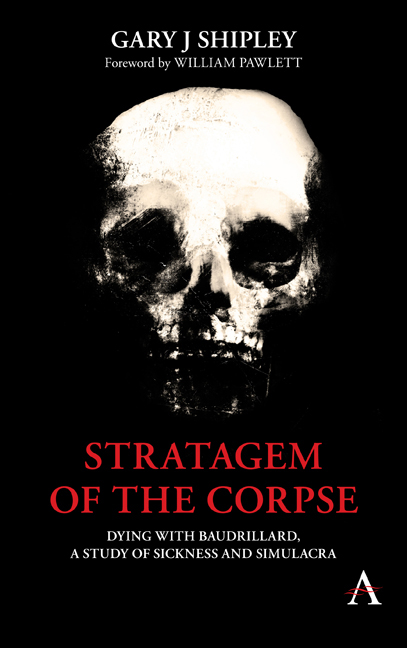Book contents
- Frontmatter
- Dedication
- Contents
- Acknowledgements
- Foreword by Pawletts William
- Introduction
- Chapter 1 On Decay and Other Synthetics
- Chapter 2 Stratagem of the Corpse
- Chapter 3 A Bleak Non-History of History
- Chapter 4 The Hyperactivity of Objects
- Chapter 5 The Unnamable Catastrophe
- Chapter 6 A Cure for Vertigo
- Chapter 7 Chance and the Temporality of Death
- Chapter 8 The Possibility of Nihilism
- Chapter 9 Smell-O-Vision: The Murder Show
- Chapter 10 The Evil Death
- Chapter 11 False Confessions and the Madness of Death: Making Death Speak
- Chapter 12 Black Light: Nigredo and Catastrophe
- Appendix 1 Whiteout: Spatiotemporal Interstices, Necropresence and the Immortality of Now
- Appendix 2 Pure Dreaming: Radicalized and Vermiculated Thought, or Death as an Earworm
- Appendix 3 The Non-Existence of the Scream
- Index
Chapter 4 - The Hyperactivity of Objects
Published online by Cambridge University Press: 20 February 2020
- Frontmatter
- Dedication
- Contents
- Acknowledgements
- Foreword by Pawletts William
- Introduction
- Chapter 1 On Decay and Other Synthetics
- Chapter 2 Stratagem of the Corpse
- Chapter 3 A Bleak Non-History of History
- Chapter 4 The Hyperactivity of Objects
- Chapter 5 The Unnamable Catastrophe
- Chapter 6 A Cure for Vertigo
- Chapter 7 Chance and the Temporality of Death
- Chapter 8 The Possibility of Nihilism
- Chapter 9 Smell-O-Vision: The Murder Show
- Chapter 10 The Evil Death
- Chapter 11 False Confessions and the Madness of Death: Making Death Speak
- Chapter 12 Black Light: Nigredo and Catastrophe
- Appendix 1 Whiteout: Spatiotemporal Interstices, Necropresence and the Immortality of Now
- Appendix 2 Pure Dreaming: Radicalized and Vermiculated Thought, or Death as an Earworm
- Appendix 3 The Non-Existence of the Scream
- Index
Summary
Are objects the enemy? After all, ‘they are the ones that interrogate us, and we are summoned to answer them,’ and finding that we cannot answer, even though ‘the answer is included in the question’, we instead quail in the presence of our very own materials. The object is a lie, but it is our lie. It is the decoration of our own mistrust – that essential mistrust that comes with anything that we have not chosen to believe.
The object is an equivalence, not to itself, but to the sullied religion of the senses. And it is not the object that refuses to dance with us, but we who refuse to dance with it – even in the midst of our mutual dancing. And how would we come to trust what is always there but never there? The levels of trust that gravitate around us are directly proportionate to a disbelief in ourselves as objects. For we do not disappear to ourselves through postulations of immateriality, but through the perceived misalignment of consciousness and the objects that are experienced as essentially not only not there for us, but not there even for themselves. The object is hyperactively nowhere, and to fully materialize ourselves as objects is to suffer a similar fate. The immanent problem with the object being that for all its activity it is never beyond itself, and it is this beyond that emulsifies human consciousness, that locates it without locating it, that acknowledges the object without becoming it. All that is aleatoric in human existence, all that is decentred and spiralling, is no more or less mysterious than the blandly automatic, the inductive reasoning that fills each moment with the day-after-day-after-day. And so we too are nowhere, and that nowhere is our peace – even if we feel like we’ve been transplanted there against our will, as if something in us has died in order to get there. It is why our nowhere needs words around it, giant edifices of belief circling our vacated perspective, with similarly disintegrated beings there as company for us, for to be nowhere in among the world, alongside the panicked busyness of humans being humans, is to every day be reminded of the ghost you’ve become, as if a return to where you were was not only possible but desirable.
- Type
- Chapter
- Information
- Stratagem of the CorpseDying with Baudrillard, a Study of Sickness and Simulacra, pp. 53 - 66Publisher: Anthem PressPrint publication year: 2020



